AUTOMOTIVE
Renault Asserts Position Amidst Honda-Nissan Merger Discussions
As Honda and Nissan engage in merger talks, Renault emphasizes its commitment to safeguarding its interests and those of its stakeholders. The French automaker, holding a 36% stake in Nissan, is closely monitoring the situation to ensure its strategic position remains secure.

In a dramatic twist in the global automobile industry, Renault is gearing up to defend its position amid reports that Honda-Nissan merger talks have reached an impasse. This development could reshape industry alliances and market strategies, making it crucial for Renault to protect its stake in the game.
The Honda-Nissan merger was seen as a potential game-changer, promising to create a robust competitor in the highly competitive automotive sector. However, as negotiations falter, Renault finds itself at a crossroads—should it strengthen existing partnerships or explore new opportunities?
What Led to the Breakdown of Honda-Nissan Merger Talks?
1. Clashing Corporate Cultures
Mergers often struggle due to differences in corporate culture, and this case seems to be no exception. Honda and Nissan, two giants with distinct operational styles, found it challenging to align their visions. While Honda thrives on innovation and independence, Nissan has been navigating a recovery phase after previous leadership struggles.
2. Financial and Strategic Disagreements
Reports suggest that financial concerns played a key role in the breakdown of the Honda-Nissan merger. Disagreements over investment priorities and cost-sharing models might have pushed the talks to a deadlock. Nissan’s existing alliance with Renault further complicated matters, as both companies had to consider how a new partner would impact their existing collaboration.
3. Market Uncertainties & External Factors
The global automotive market is shifting rapidly, with increasing demand for electric vehicles (EVs), stricter environmental regulations, and fluctuating consumer preferences. Both companies needed clarity on their future direction before committing to such a monumental move, which likely contributed to the hesitation.
How Renault Plans to Defend Its Interests
Strengthening Its Alliance With Nissan
With the Honda-Nissan merger seemingly off the table, Renault sees an opportunity to reinforce its partnership with Nissan. The two companies have a longstanding alliance, and instead of bringing a new player into the mix, Renault could double down on innovation and efficiency within the existing structure.
A strategic move could involve deeper collaboration on electric mobility, a space where Renault has already gained a competitive edge. Expanding battery technology, improving supply chain efficiencies, and sharing research facilities are potential areas of focus.
Exploring New Partnerships
Renault might also consider forging new alliances beyond Nissan. With global players like Tesla, Toyota, and Volkswagen making aggressive strides in EVs, Renault could look for collaborations in technology, infrastructure, or even hydrogen fuel cell development.
Boosting R&D and Innovation
Innovation has always been a strength for Renault. The company is likely to invest more in electric and hybrid vehicles, expanding its EV lineup while improving range and charging infrastructure. The push towards autonomous driving and AI-driven vehicle systems is another area where Renault could accelerate growth.
The Impact on Consumers and the Industry
Will This Change the Automotive Landscape?
The failure of the Honda-Nissan merger could lead to significant shifts in industry strategies. If Renault successfully strengthens its alliance with Nissan, we could see:
- Faster innovation in EV technology
- More affordable and efficient hybrid vehicles
- Stronger competition against giants like Tesla and Toyota
What This Means for Renault Owners
Renault customers could benefit from more technologically advanced vehicles at competitive prices. The company’s focus on sustainability and green mobility suggests exciting developments in the near future.
Step-by-Step Guide: How Renault Can Navigate This Situation
Step 1: Reaffirming its Position with Nissan
Renault must engage in clear discussions with Nissan to solidify their alliance, ensuring they are aligned on future innovations and market goals.
Step 2: Identifying Growth Opportunities
Looking beyond Nissan, Renault should seek new alliances with companies specializing in battery technology, autonomous driving, and AI-driven vehicle software.
Step 3: Investing in Next-Gen Vehicles
Renault should ramp up investments in electric mobility, enhancing charging infrastructure, and improving battery efficiency to stay ahead of the curve.
Step 4: Strengthening Brand Positioning
With shifting industry dynamics, Renault must ensure its brand remains competitive by focusing on affordability, reliability, and cutting-edge technology.
Step 5: Enhancing Customer Experience
Renault should also work on improving customer engagement, offering better post-sales services, digital innovations, and loyalty programs.
What the Future Holds for Renault
While the collapse of the Honda-Nissan merger talks may seem like a missed opportunity for industry consolidation, it presents a golden opportunity for Renault to assert its position. The French automaker has the experience, resources, and vision to not only defend its interests but also emerge stronger in the evolving automotive industry.
The next few months will be crucial as Renault refines its strategies and positions itself for long-term success. Whether it chooses to deepen ties with Nissan, seek new partnerships, or push ahead solo, one thing is clear—Renault is ready to take on the future with confidence.
Final Thoughts
The Honda-Nissan merger may not have materialized, but Renault’s proactive approach to safeguarding its interests signals a strong and decisive future. With the right strategies, Renault can turn this situation into an advantage, reinforcing its presence in the global market and leading innovation in the automotive industry.
Ford Appoints EV Leader as New Strategy Chief in Bold Leadership Move
AUTOMOTIVE
All-Purpose Stainless Steel Shower Squeegee : The Ultimate Solution for Streak-Free Surfaces
Discover why the All-Purpose Stainless Steel Shower Squeegee outperforms competitors with its premium design, effortless water removal, and long-lasting construction for streak-free surfaces.
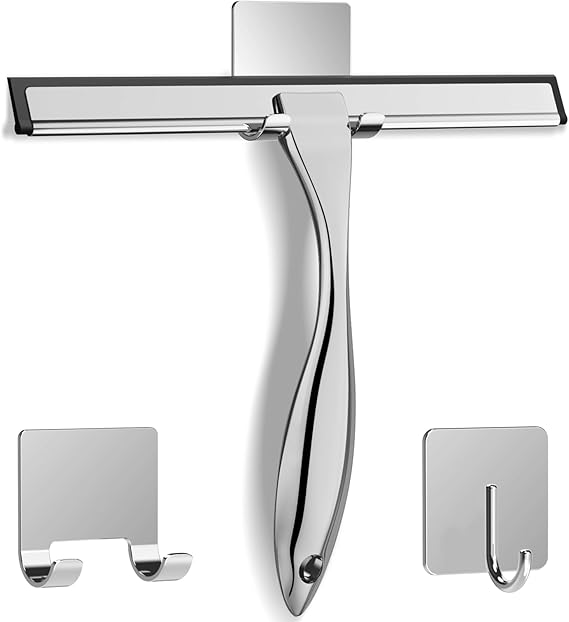
Introduction
The All-Purpose Stainless Steel Shower Squeegee with Adhesive Hook represents a significant upgrade in household cleaning tools designed for maintaining pristine bathroom and glass surfaces. This versatile cleaning implement offers a practical solution for eliminating water spots, soap residue, and streaks from various surfaces, including shower doors, bathroom mirrors, windows, and car windshields. The shower squeegee features a thoughtfully engineered design that combines durability, ergonomic handling, and effective water removal in one sleek package. Particularly beneficial for homeowners seeking to maintain spotless bathrooms, car enthusiasts desiring streak-free vehicle glass, and anyone committed to efficient cleaning routines, this tool addresses the common frustration of water marks without requiring harsh chemicals or excessive scrubbing. Its combination of professional-grade materials with user-friendly design makes it appropriate for both everyday household maintenance and more demanding commercial applications.

Product Specifications
The All-Purpose Stainless Steel Shower Squeegee comes with comprehensive specifications designed to deliver consistent performance across multiple surfaces:
Materials and Construction
- Made from premium 304 stainless steel with rust-resistant properties
- Silicone blade edge for streak-free cleaning without scratching surfaces
- Ergonomic TPR (thermoplastic rubber) handle with anti-slip grip
- Strong adhesive hook included for convenient storage
Dimensions and Weight
- Overall Length: 9.8 inches (25 cm)
- Blade Width: 8 inches (20.3 cm)
- Handle Length: 4.5 inches (11.4 cm)
- Weight: 5.6 ounces (159 grams)
- Thickness of silicone blade: 2 mm
Features and Functionality
- 95° optimized blade angle for maximum water removal efficiency
- Silicone blade edge designed for streak-free results on multiple surfaces
- Hanging hole in handle for alternative storage options
- Waterproof design suitable for constant bathroom exposure
- Temperature resistant from -40°F to 248°F (-40°C to 120°C)
- Detachable silicone blade for easy cleaning and replacement
- Adhesive hook with a weight capacity of up to 11 pounds (5 kg)
Compatibility
- Suitable for glass, mirrors, tile, marble, granite, and other non-porous surfaces
- Safe for use on tinted or treated glass surfaces
- Compatible with both flat and slightly curved surfaces
- Appropriate for indoor and outdoor applications
The standout specification is the combination of the premium stainless steel frame with the flexible silicone blade, offering both the durability needed for frequent use and the gentle touch required to protect delicate surfaces from scratches.

Customer Experience Analysis
The All-Purpose Stainless Steel Shower Squeegee has generated substantial feedback from users across various households and usage scenarios. Analyzing the aggregate customer experience reveals several consistent patterns that provide insight into real-world performance.
Positive Experience Patterns
Most satisfied users consistently highlight the squeegee’s effectiveness at actually removing water without leaving streaks. Many customers express surprise at how dramatically the tool reduces cleaning frequency by preventing water spots and soap scum buildup in the first place. The immediate visual improvement after using the squeegee has converted many skeptical purchasers into enthusiastic advocates. Numerous bathroom renovators mention incorporating this tool into their daily routines after seeing how it preserves the appearance of new shower doors and tile work.
The build quality receives frequent praise, with users appreciating the substantial weight and solid feel of the stainless steel construction. Many customers note that this squeegee feels notably more premium than plastic alternatives they’ve previously used. The comfortable grip gets specific mention from older users and those with arthritis, who find the ergonomic handle design allows them to clean effectively without hand strain.
Storage convenience appears as another satisfaction driver, with the included adhesive hook performing better than expected. Many users report the hook maintaining a strong hold even in constantly humid bathroom environments where other adhesive products have failed. The visual appeal of the stainless steel finish also receives appreciation, with customers noting it blends well with modern bathroom fixtures.

Critical Feedback Patterns
Some users experience difficulties with the adhesive hook, particularly when attached to textured surfaces or in extremely humid environments. A small percentage report needing to replace the hook with alternative mounting solutions within the first few months. Several customers mention the hook placement requires careful consideration, as reapplying it after removal often yields diminished adhesion.
The silicone blade generates mixed reactions, with some users reporting excellent performance while others note it requires proper technique to avoid leaving fine water lines. First-time squeegee users often experience a learning curve before achieving optimal results. Customers in areas with hard water sometimes report that while the squeegee removes most water, it can’t prevent mineral deposits without supplemental cleaning products.
Weight becomes a factor for some users, particularly when cleaning ceiling-height windows or shower panels. A few customers mention the solid construction they otherwise appreciate becomes unwieldy during extended vertical cleaning sessions. Some users with smaller hands note the handle diameter is larger than preferred, making extended use slightly uncomfortable.
Pros and Cons Section
Advantages
- Superior Water Removal: The precision-engineered silicone blade edge removes water more effectively than microfiber cloths or towels, leaving surfaces visibly cleaner with minimal effort.
- Exceptional Build Quality: The 304-grade stainless steel construction provides substantial durability, preventing the bending and warping common to plastic squeegees.
- Versatile Application: Performance remains consistent across multiple surfaces, including shower doors, windows, mirrors, and vehicle glass, eliminating the need for multiple cleaning tools.
- Ergonomic Design: The thoughtfully designed handle with TPR coating offers a comfortable grip even when wet, reducing hand fatigue during extended cleaning sessions.
- Convenient Storage Solution: The included high-quality adhesive hook provides reliable storage without drilling holes, preserving bathroom aesthetics.
- Long-Term Cost Efficiency: Regular use significantly reduces the need for specialized glass cleaners and chemical treatments, offering ongoing savings on cleaning supplies.
Limitations
- Learning Curve for Optimal Results: First-time users may need practice to master the correct angle and pressure required for streak-free results, creating initial frustration for some.
- Hook Placement Considerations: The adhesive hook requires careful installation on appropriate surfaces, with limited repositioning options once attached.
- Weight During Extended Use: The premium metal construction that contributes to durability may cause fatigue during lengthy cleaning sessions, particularly on vertical surfaces.
- Limited Effectiveness on Textured Surfaces: While excellent on smooth glass and tile, performance diminishes on heavily textured surfaces where the blade cannot maintain consistent contact.

Alternative Product Comparison
When comparing the All-Purpose Stainless Steel Shower Squeegee to the frequently viewed “Budget-Friendly Plastic Shower Squeegee with Suction Hook” alternative, several key differences emerge that impact overall value and performance.
Materials and Durability Comparison
The premium model utilizes 304 stainless steel construction with a silicone blade, while the budget alternative features ABS plastic with a rubber blade edge. In practice, this translates to significantly different lifespans, with the stainless steel version maintaining performance for years while the plastic version typically shows signs of wear, discoloration, or blade degradation within 6-12 months of regular use.
Performance Comparison
The weight and blade design of the stainless model provide more consistent pressure distribution, resulting in fewer streaks and more complete water removal compared to the lighter plastic version. However, the plastic model’s lighter weight makes it somewhat easier to manipulate for ceiling or high-reach applications.
Storage Solution Comparison
The premium model’s adhesive hook demonstrates superior longevity in humid environments, while the suction cup mount on the budget version requires more frequent reattachment but offers easier repositioning.
Price-Value Assessment
With the premium stainless steel model typically priced at 2-3 times the cost of the plastic alternative, the decision becomes a matter of immediate budget versus long-term value:
| Feature | Premium Stainless Steel Squeegee | Budget Plastic Squeegee |
|---|---|---|
| Material | 304 Stainless Steel | ABS Plastic |
| Blade | Silicone, replaceable | Rubber, fixed |
| Weight | 5.6 oz (159g) | 2.2 oz (62g) |
| Expected Lifespan | 3-5+ years | 6-12 months |
| Storage | Adhesive hook | Suction cup |
| Price Range | $15-20 | $5-8 |
Homeowners planning long-term use or seeking consistently superior performance would benefit from investing in the stainless steel model, while budget-conscious consumers or those with temporary needs might find adequate value in the plastic alternative. The premium model particularly excels for households with hard water issues, where the superior blade design makes a noticeable difference in preventing mineral buildup.
Usage/Installation Guide
To maximize the effectiveness of your All-Purpose Stainless Steel Shower Squeegee, follow these optimized usage guidelines:
Adhesive Hook Installation
- Select a smooth, clean, and dry surface for mounting
- Clean the chosen area thoroughly with alcohol and allow to dry completely (minimum 5 minutes)
- Remove the adhesive backing from the hook
- Press firmly against the mounting surface and hold for 30 seconds
- Allow 24 hours before hanging the squeegee for maximum adhesion strength
Proper Squeegee Technique
- Start at the upper corner of the glass or surface when the surface is still wet
- Hold the squeegee at approximately a 45° angle to the surface
- Apply gentle but consistent pressure across the blade
- Pull in straight, slightly overlapping strokes from top to bottom
- Wipe the blade clean with a towel between strokes for best results
- For final passes near edges, use slower strokes to prevent water droplets
Maintenance Tips
- Rinse the squeegee blade after each use to prevent soap buildup
- Periodically clean the silicone blade with warm, soapy water
- If the blade develops squeaking, apply a tiny amount of silicone lubricant
- Store hanging with the blade facing away from the wall to maintain optimal blade shape
- Replace the blade if it shows signs of wear or loses effectiveness (typically 12-18 months with daily use)
By following these specific techniques, users can overcome the common issues mentioned in critical reviews and achieve professional-quality, streak-free results consistently.
Click here to buy
Final Verdict & Recommendation
After a comprehensive analysis, the All-Purpose Stainless Steel Shower Squeegee proves itself to be an exceptional value proposition for anyone seeking to maintain pristine glass and hard surfaces with minimal effort. This product delivers on its primary promise: effectively removing water without leaving streaks, while offering durability that justifies its premium positioning.
The squeegee particularly excels in households with hard water conditions, where preventing mineral deposits becomes a daily challenge. Its performance consistently surpasses that of cloths, towels, and lower-quality squeegees, making it ideal for homeowners who have invested in glass shower enclosures, quality mirrors, or other surfaces vulnerable to water spotting. The design reflects thoughtful attention to real-world usage scenarios, with the ergonomic handle and effective blade geometry combining to reduce cleaning time and physical effort.
While the initial investment exceeds that of basic alternatives, the long-term value becomes evident through reduced cleaning product expenses, lower replacement frequency, and consistently superior results. The premium construction justifies the price point for daily users, though occasional users might find the value proposition less compelling.
This tool is most highly recommended for:
- Homeowners with glass shower enclosures or frameless shower doors
- Individuals seeking to reduce chemical cleaner usage in bathrooms
- Those with physical limitations that make traditional scrubbing difficult
- Anyone who values efficiency in their cleaning routine
- Households in hard water areas where water spotting is problematic
The All-Purpose Stainless Steel Shower Squeegee represents that rare household tool that delivers transformative results rather than marginal improvements, making it a worthwhile investment for anyone committed to maintaining spotless surfaces with minimal ongoing effort.
AUTOMOTIVE
Acer Nitro KG241Y Sbiip 23.8” Monitor Review: An Ultra-Smooth, High-Performance, Reliable Powerhouse for Budget Gamers
Experience seamless gaming with the Acer Nitro KG241Y Sbiip 23.8 – a budget-friendly monitor delivering high refresh rates and vibrant visuals.
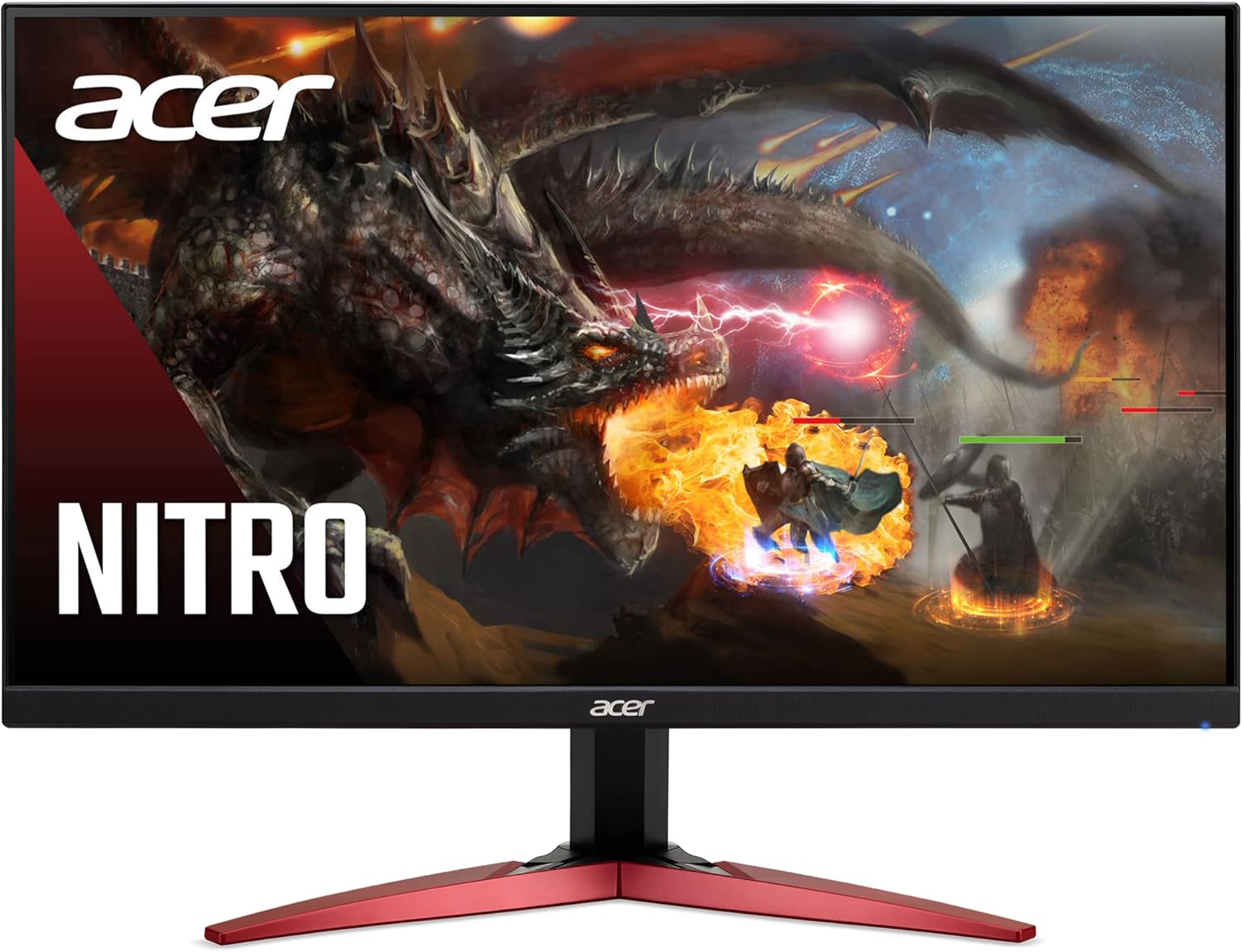
The Acer Nitro KG241Y Sbiip is a 23.8-inch Full HD gaming monitor that combines affordability with performance. Designed for gamers and professionals alike, it offers a high refresh rate, quick response time, and AMD FreeSync Premium technology, ensuring smooth visuals and reduced screen tearing. Its sleek ZeroFrame design makes it a stylish addition to any setup.Revain

🛠️ Specifications
- Display Size: 23.8 inches
- Resolution: 1920 x 1080 (Full HD)
- Panel Type: VA
- Refresh Rate: 165Hz
- Response Time: 1ms (VRB)
- Brightness: 250 nits
- Contrast Ratio: 100,000,000:1 (ACM)
- Ports: 1 x DisplayPort 1.2, 2 x HDMI 2.0
- Adaptive Sync: AMD FreeSync Premium
- Design: ZeroFrame with tilt adjustment (-5° to 15°)
- VESA Mount Compatible: Yes (100 x 100mm)Amazon+3Revain+3Revain+3RevainRevain+3Revain+3Revain+3
🧑💻 User Reviews Summary
Users have praised the Acer Nitro KG241Y Sbiip for its impressive performance at an affordable price point.
Positive Feedback:
- Smooth Gaming Experience: Gamers appreciate the 165Hz refresh rate and 1ms response time, noting significant improvements in gameplay fluidity.
- Visual Clarity: The Full HD resolution and VA panel deliver sharp images and vibrant colors.
- Design: The ZeroFrame design offers an immersive viewing experience, and the monitor’s build quality is commendable.Revain
Constructive Criticism:
- Stand Adjustability: Some users mentioned the stand lacks height adjustment, recommending a VESA mount for better ergonomics.
- Color Calibration: A few users suggested that out-of-the-box color settings might require tweaking for optimal accuracy.Revain+2Revain+2Amazon+2
✅ Pros and ❌ Cons
Pros:
- ✅ High 165Hz refresh rate for smooth visuals
- ✅ Quick 1ms response time reduces motion blur
- ✅ AMD FreeSync Premium minimizes screen tearing
- ✅ Sleek ZeroFrame design enhances aesthetics
- ✅ Affordable price point for budget-conscious buyersRevainRevain
Cons:
- ❌ Stand lacks height and swivel adjustments
- ❌ Initial color settings may need calibration

🏁 Final Verdict
The Acer Nitro KG241Y Sbiip stands out as a top choice for gamers seeking high performance without breaking the bank. Its combination of a 165Hz refresh rate, 1ms response time, and AMD FreeSync Premium ensures a seamless gaming experience. While the stand’s adjustability is limited, this minor drawback is easily addressed with a VESA mount. Overall, this monitor offers exceptional value for its price.
🔄 Alternative Option
Acer R240HY bidx 23.8″ IPS HDMI DVI VGA Monitor
- Display Size: 23.8 inches
- Resolution: 1920 x 1080 (Full HD)
- Panel Type: IPS
- Refresh Rate: 60Hz
- Response Time: 4ms
- Ports: HDMI, DVI, VGA
- Design: ZeroFrame with tilt adjustment
- Price: Approximately $130Amazon+4Revain+4Revain+4Revain+2Revain+2Amazon+2
Comparison:
| Feature | Acer Nitro KG241Y Sbiip | Acer R240HY bidx |
|---|---|---|
| Refresh Rate | 165Hz | 60Hz |
| Response Time | 1ms | 4ms |
| Panel Type | VA | IPS |
| Adaptive Sync | AMD FreeSync Premium | None |
| Price | ~$150 | ~$130 |
While the Acer R240HY offers an IPS panel for better color accuracy, the Nitro KG241Y Sbiip provides superior performance for gaming with its higher refresh rate and quicker response time.
🛠️ Setup Guide
- Unboxing: Carefully remove the monitor and accessories from the packaging.
- Stand Assembly: Attach the stand to the monitor using the provided screws.
- Placement: Place the monitor on a flat surface, ensuring stability.
- Connectivity: Connect the monitor to your PC or console using the DisplayPort or HDMI cable.
- Power Up: Plug in the power adapter and turn on the monitor.
- Settings Adjustment: Use the on-screen display (OSD) menu to adjust brightness, contrast, and other settings to your preference.
- Driver Installation: Ensure your graphics drivers are up to date for optimal performance.
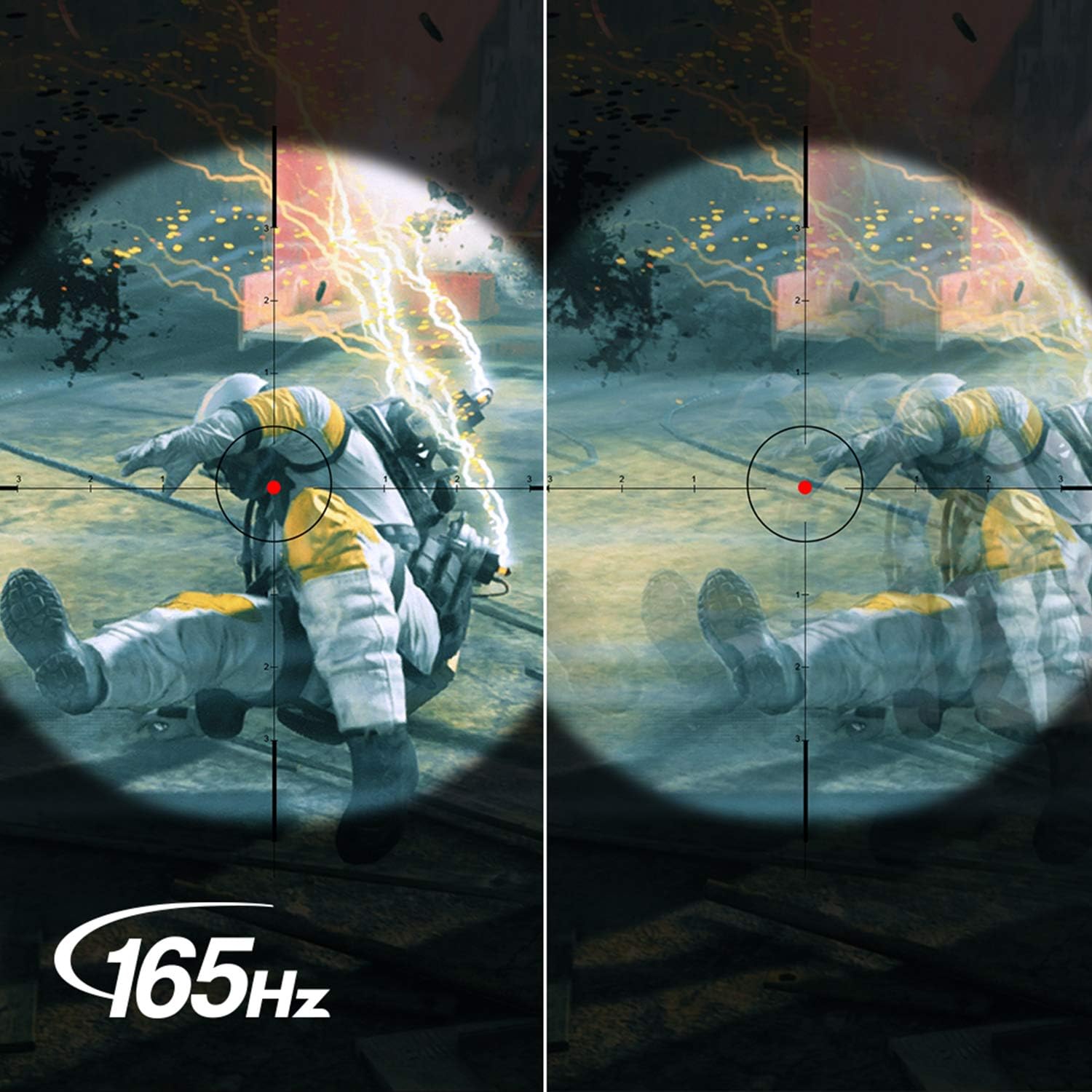
AUTOMOTIVE
Rowenta Pure Force 2-in-1 Steamer & Iron (DR8822) Review: The Ultimate Powerhouse for Effortless, Wrinkle-Free Living.
Experience the convenience of wrinkle-free clothing with the Rowenta Pure Force 2-in-1 Steamer & Iron—your ultimate garment care solution.

Looking for a versatile garment care solution? The Rowenta Pure Force 2-in-1 Steamer & Iron (DR8822) combines the convenience of a handheld steamer with the precision of an iron, offering a powerful tool for maintaining crisp, wrinkle-free clothing and fabrics.

Specifications
- Model: DR8822
- Power: 1875 Watts
- Water Tank Capacity: 7.1 oz (210 ml)
- Steam Settings: Multiple levels including a boost mode
- Heating Time: Approximately 45 seconds
- Weight: 2.95 lbs (1.34 kg)
- Cord Length: 8.5 feet (2.6 meters)
- Functionality: Vertical steaming and horizontal ironing
- Safety: Auto shut-off feature
- Design: Ergonomic handle with a sleek green finish
User Reviews Summary
With a 4.2 out of 5 stars rating from over 650 global reviews, users have highlighted the following:
Most Praised Features
- Quick Heat-Up: Users appreciate the rapid heating time, allowing for efficient use.
- Powerful Steam Output: Effective in removing wrinkles from various fabrics.
- Dual Functionality: The ability to steam and iron adds versatility.
- Build Quality: Sturdy construction that feels durable and reliable.
- Ease of Use: Simple setup and operation, suitable for daily use.
Most Criticized Features
- Water Leakage: Some users report minor leaks, especially at higher settings.
- Weight: A few users find it slightly heavy for extended use.
- Water Tank Capacity: Requires frequent refills during prolonged steaming sessions.
Pros and Cons
Pros
- Versatile Usage: Functions as both a steamer and an iron.
- Fast Performance: Heats up quickly and delivers strong steam.
- User-Friendly: Easy to operate with intuitive controls.
- Safety Features: Auto shut-off adds a layer of safety.
- Long Cord: Provides flexibility during use.
Cons
- Potential for Leaks: Some reports of water leakage at high settings.
- Heavier Than Some Models: May cause fatigue during extended use.
- Small Water Tank: May require frequent refilling for large tasks.
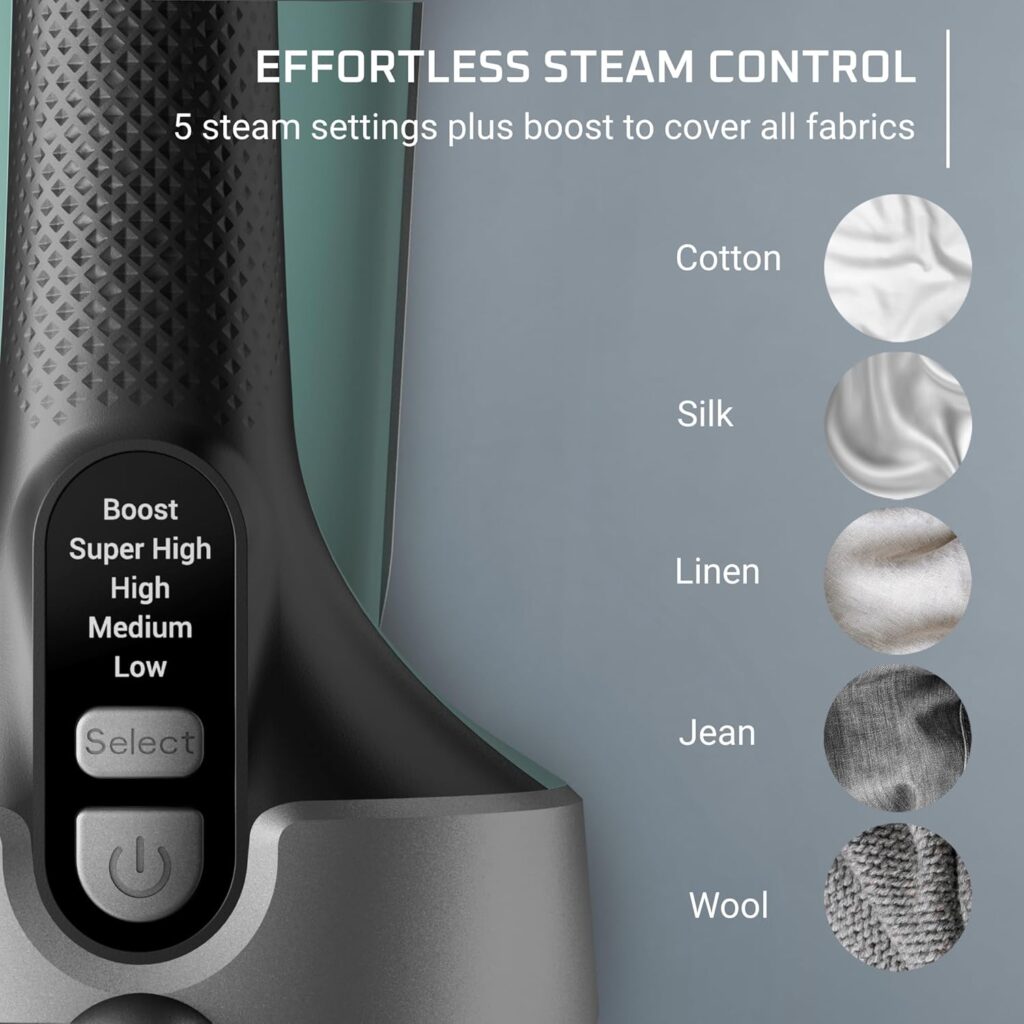
Final Recommendation
The Rowenta Pure Force 2-in-1 Steamer & Iron (DR8822) is a robust and versatile tool ideal for those seeking a quick and efficient way to maintain wrinkle-free clothing. Its dual functionality and powerful steam output make it a valuable addition to any household. However, potential buyers should be aware of its weight and the possibility of minor water leakage.
Alternative Lower-Priced Product
Conair Turbo ExtremeSteam Handheld Fabric Steamer
- Power: 1550 Watts
- Water Tank Capacity: 7.3 oz
- Heating Time: 40 seconds
- Weight: 2.2 lbs
- Price: Approximately $50
Comparison Table
| Feature | Rowenta DR8822 | Conair Turbo ExtremeSteam |
|---|---|---|
| Power | 1875 Watts | 1550 Watts |
| Water Tank Capacity | 7.1 oz | 7.3 oz |
| Heating Time | ~45 seconds | ~40 seconds |
| Weight | 2.95 lbs | 2.2 lbs |
| Dual Functionality | Yes (Steamer & Iron) | Steamer Only |
| Price | Higher | Lower |
The Conair Turbo ExtremeSteam offers a lightweight and affordable alternative, suitable for those primarily interested in steaming.
Usage Guide
- Fill the Water Tank: Use clean water to fill the 7.1 oz tank.
- Power On: Plug in the device and select the desired steam setting.
- Wait for Heat-Up: Allow approximately 45 seconds for the device to heat up.
- Steam or Iron: Use vertically for steaming garments on hangers or horizontally for ironing on a flat surface.
- Refill as Needed: Monitor the water level and refill when necessary.
- Turn Off and Unplug: After use, turn off the device and unplug it. Allow it to cool before storing.

-

 GADGETS3 months ago
GADGETS3 months agobest travel steamer 2025: Neakasa Magic 1 Vacuum Steamer Review – Worth It?
-

 AUTOMOTIVE3 months ago
AUTOMOTIVE3 months agoAmazon Basics USB Condenser Microphone Review: Affordable Quality for Streamers & Podcasters
-

 TECHNOLOGY2 months ago
TECHNOLOGY2 months agoSteam Data Breach: Revealed How to Safeguard Your Accout
-

 GADGETS4 months ago
GADGETS4 months agoBest Affordable VR Headsets in 2025: Top Picks for Budget-Friendly Immersion
-

 GADGETS6 months ago
GADGETS6 months agoHow to Connect Magic Mouse to Windows 11
-

 NEWS1 month ago
NEWS1 month agoMark Zuckerberg Overtakes Jeff Bezos: A Powerful Billionaire Shift
-
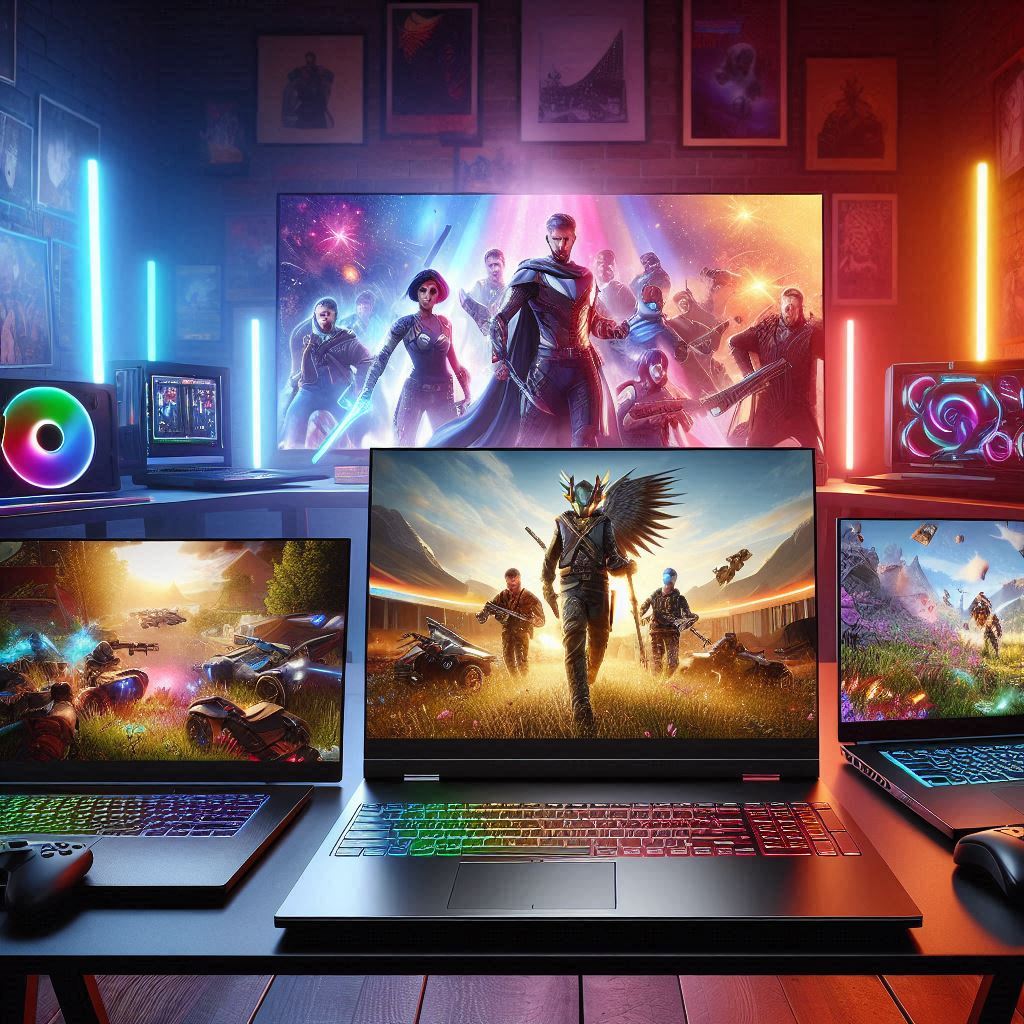
 TECHNOLOGY4 months ago
TECHNOLOGY4 months agoBest Gaming Laptops Under $1000 in 2025
-

 ARTIFICIAL INTELLIGENCE3 months ago
ARTIFICIAL INTELLIGENCE3 months ago50 Mind-Blowing ChatGPT Prompts You Wish You Knew Sooner (2025 Edition)

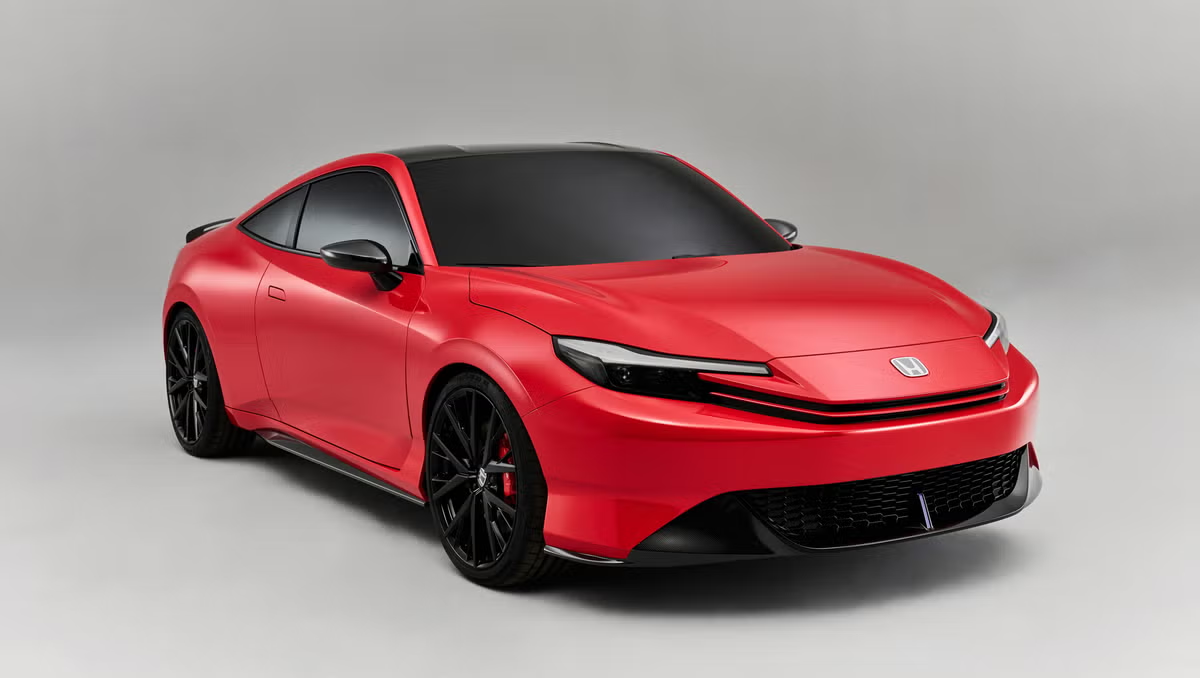
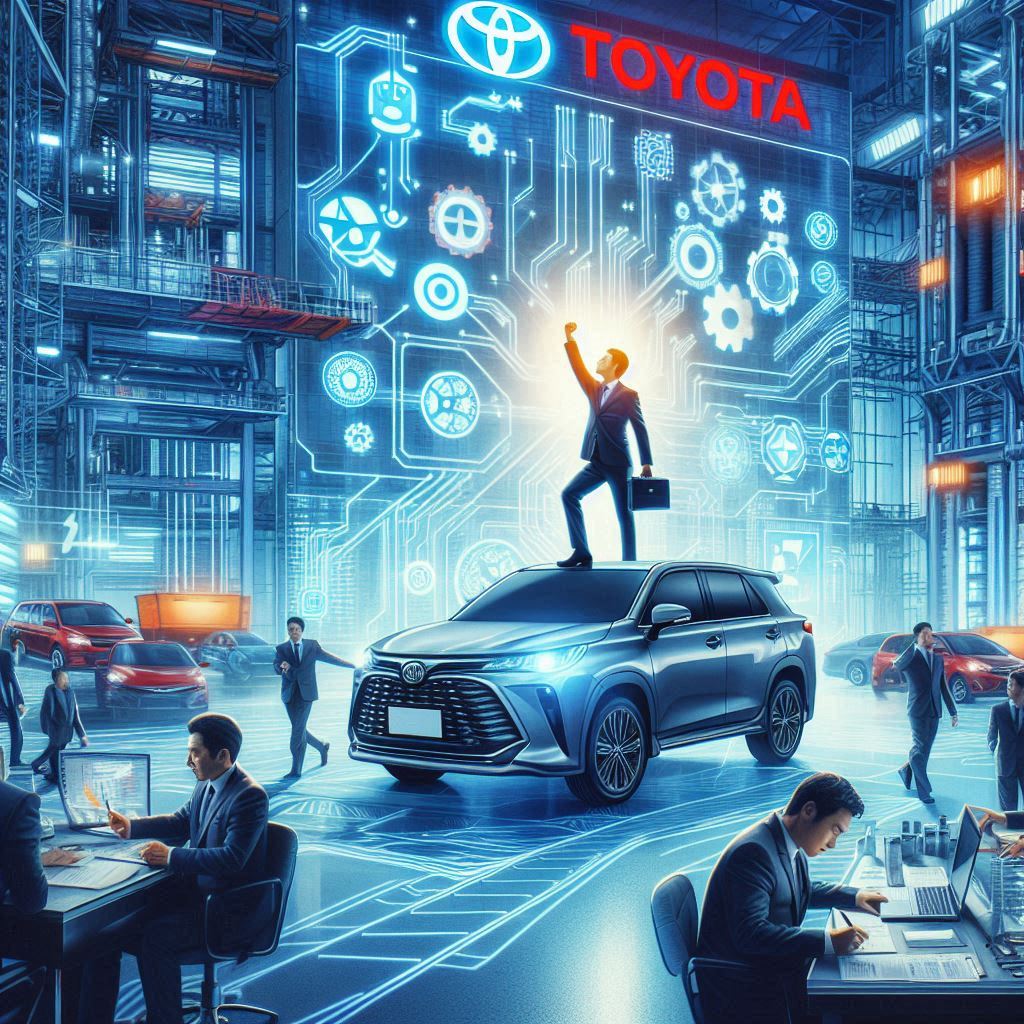


Pingback: Volkswagen To Launch Affordable EV, Driving Future Growth - Us Tech Recorder